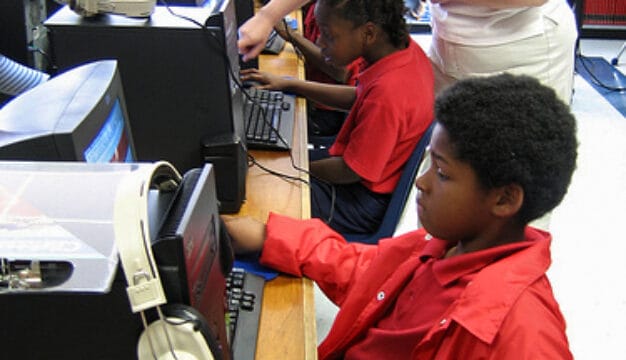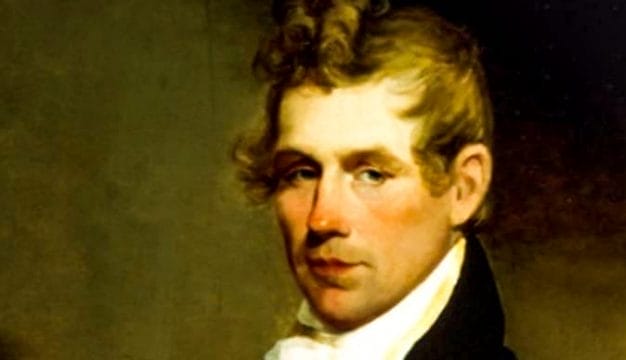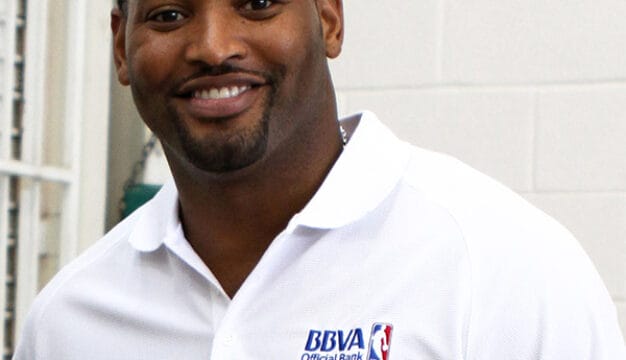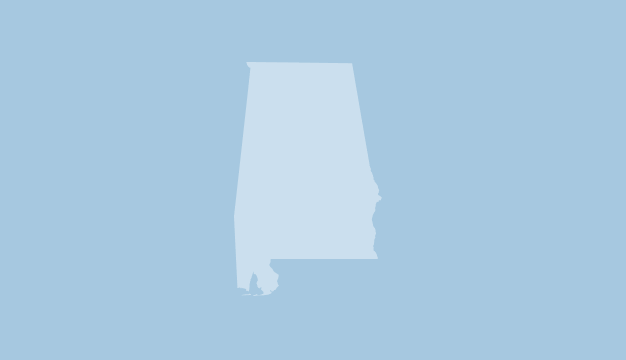Rickwood Field
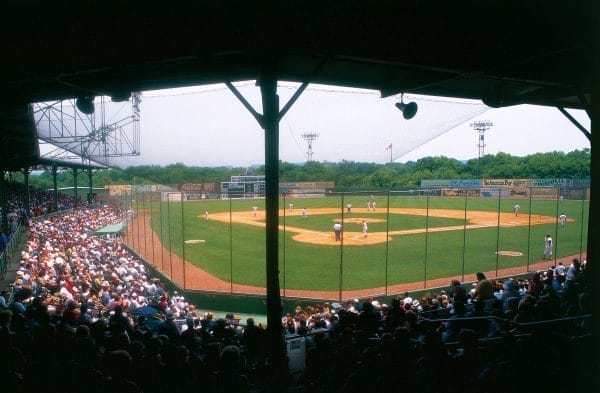 Rickwood Field
Birmingham‘s Rickwood Field is the nation’s oldest operating professional ballpark and served as the home field of the Birmingham Barons and the Birmingham Black Barons for decades. The steel-and-concrete facility in Jefferson County has seen many legends of the game circle its bases, from local minor-league heroes to Negro League greats and icons of Major League Baseball. In all, more than 50 members of the Major League Baseball Hall of Fame have entertained fans throughout Rickwood Field’s illustrious history.
Rickwood Field
Birmingham‘s Rickwood Field is the nation’s oldest operating professional ballpark and served as the home field of the Birmingham Barons and the Birmingham Black Barons for decades. The steel-and-concrete facility in Jefferson County has seen many legends of the game circle its bases, from local minor-league heroes to Negro League greats and icons of Major League Baseball. In all, more than 50 members of the Major League Baseball Hall of Fame have entertained fans throughout Rickwood Field’s illustrious history.
Professional baseball was first played in the South in 1885, when the Southern League was launched under the leadership of Atlanta journalist and “Spokesman of the New South” Henry W. Grady. The Birmingham Coal Barons joined four teams from Georgia and three from Tennessee to form the Southern League, which folded in 1899. In 1901, minor-league baseball returned to the South and Birmingham with the formation of the Southern Association. The Birmingham Barons hosted games at West End Park’s “Slag Pile,” a small ball field owned by the Tennessee Coal, Iron, and Railroad company and named for the mounds of slag beyond the outfield fence where fans could sit to see the games for free.
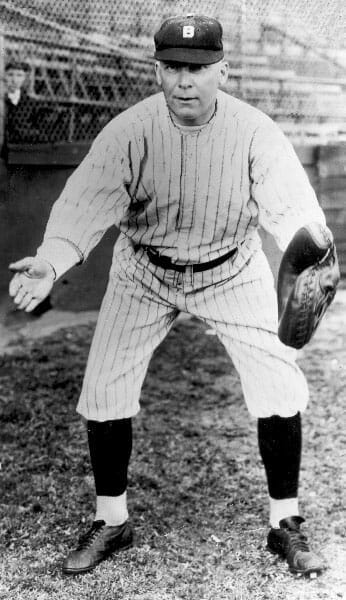 Rick Woodward
In 1909, A. H. “Rick” Woodward, son of Woodward Iron Company owner Joseph H. Woodward, bought controlling interest in the Birmingham team and built a new ballpark, named “Rickwood” in response to a newspaper poll. Located near the state fairgrounds, Rickwood was modeled after newly erected Shibe Park in Philadelphia and Forbes Field in Pittsburgh. Fittingly, for the center of steel and iron production in the South, Rickwood was the first minor-league ball field to be constructed of steel and concrete, in contrast to the wooden bleachers that were prevalent at the time. Its dimensions were 405 feet to the left field fence, 470 feet to center field, and 334 feet to right field, distances that especially for the minor leagues made home runs rare. By the time construction had been completed, the 7,000-seat park cost $75,000, exceeding its projected cost by $50,000.
Rick Woodward
In 1909, A. H. “Rick” Woodward, son of Woodward Iron Company owner Joseph H. Woodward, bought controlling interest in the Birmingham team and built a new ballpark, named “Rickwood” in response to a newspaper poll. Located near the state fairgrounds, Rickwood was modeled after newly erected Shibe Park in Philadelphia and Forbes Field in Pittsburgh. Fittingly, for the center of steel and iron production in the South, Rickwood was the first minor-league ball field to be constructed of steel and concrete, in contrast to the wooden bleachers that were prevalent at the time. Its dimensions were 405 feet to the left field fence, 470 feet to center field, and 334 feet to right field, distances that especially for the minor leagues made home runs rare. By the time construction had been completed, the 7,000-seat park cost $75,000, exceeding its projected cost by $50,000.
The Birmingham Barons inaugurated Rickwood Field on August 18, 1910, by defeating the Montgomery Climbers in front of more than 10,000 fans. Rick Woodward became chairman of the board of Woodward Iron Company when his father died in 1917 and used the company’s assets to promote and improve Rickwood Field and the Barons organization, offering high salaries to draw talent and improve the team’s performance. The Barons played at Rickwood Field in the Southern Association from 1910-61, and in the Southern League (the renamed South Atlantic League) from 1964-65, 1967-75, and 1981-87.
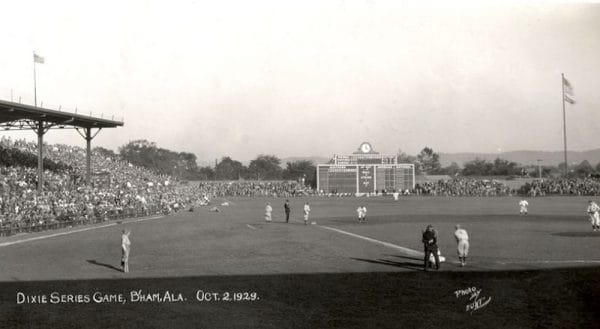 Dixie Series at Rickwood Field, 1926
Interest in baseball waned during World War I but returned after the war. During the 1920s, Woodward made several renovations to the field, extending a roof over the concrete right-field bleachers in 1924 and adding covered concrete bleachers along the third-base line in 1927. The last and most major renovation took place in 1928, when a covered grandstand running down the right field line and around the foul pole into the outfield was installed. Bleachers for African American fans, with no cover from the sun, were built beyond the grandstand, deep in the outfield, and were known as “Negro bleachers.” The entrance to the ballpark was constructed in a Hollywood-inspired Spanish Mission style, similar to Woodward’s estate on Red Mountain.
Dixie Series at Rickwood Field, 1926
Interest in baseball waned during World War I but returned after the war. During the 1920s, Woodward made several renovations to the field, extending a roof over the concrete right-field bleachers in 1924 and adding covered concrete bleachers along the third-base line in 1927. The last and most major renovation took place in 1928, when a covered grandstand running down the right field line and around the foul pole into the outfield was installed. Bleachers for African American fans, with no cover from the sun, were built beyond the grandstand, deep in the outfield, and were known as “Negro bleachers.” The entrance to the ballpark was constructed in a Hollywood-inspired Spanish Mission style, similar to Woodward’s estate on Red Mountain.
To increase the park’s profitability, Woodward rented Rickwood to the University of Alabama, Alabama Polytechnic Institute (now Auburn University), and Howard College (now Samford University) for football games. He also rented the field to the owners of the Birmingham Black Barons, of the Negro Leagues. The Black Barons, who often enjoyed equal turnout and press coverage at Rickwood, played there from 1924-25 and 1927-30 as a major-league team and also in the minor Negro American League from 1937-38 and 1940-50.
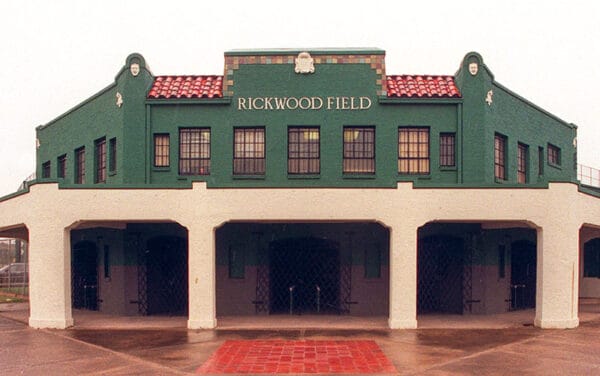 Rickwood Field Entrance
In 1936, Woodward installed lights, and on May 21 of that year, Rickwood Field became one of the nation’s first parks to host night baseball in an attempt to boost attendance. Night baseball in Birmingham was instantly popular, and the Barons drew 43,000 fans during the first five night games. In 1938, Woodward sold the Barons and Rickwood Field to businessman Ed Norton for $175,000. After two seasons, Norton sold the team to the Cincinnati Reds, and the outfield fences were shortened to increase the home run rate, and with it, attendance. The outfield fences were shortened several more times in the 1940s and the venue changed owners as well. In 1966, owner Al Belcher sold the field to the city of Birmingham but continued to lease the site and manage the Barons. In 1966, businessman Charlie Finley, an Ensley native, took control of the lease and moved the AAA farm team of California’s Oakland Athletics to the field. At this time, the Barons came to be known as the Birmingham A’s. In 1981, Rickwood became home to the Detroit Tigers AA team under manager Art Clarkson, and the team adopted the Barons as its name. In 1986, the Tigers moved the team, and the Chicago White Sox took up residence at Rickwood, also using the name Barons. The following year, the Barons moved to a new suburban stadium in Hoover.
Rickwood Field Entrance
In 1936, Woodward installed lights, and on May 21 of that year, Rickwood Field became one of the nation’s first parks to host night baseball in an attempt to boost attendance. Night baseball in Birmingham was instantly popular, and the Barons drew 43,000 fans during the first five night games. In 1938, Woodward sold the Barons and Rickwood Field to businessman Ed Norton for $175,000. After two seasons, Norton sold the team to the Cincinnati Reds, and the outfield fences were shortened to increase the home run rate, and with it, attendance. The outfield fences were shortened several more times in the 1940s and the venue changed owners as well. In 1966, owner Al Belcher sold the field to the city of Birmingham but continued to lease the site and manage the Barons. In 1966, businessman Charlie Finley, an Ensley native, took control of the lease and moved the AAA farm team of California’s Oakland Athletics to the field. At this time, the Barons came to be known as the Birmingham A’s. In 1981, Rickwood became home to the Detroit Tigers AA team under manager Art Clarkson, and the team adopted the Barons as its name. In 1986, the Tigers moved the team, and the Chicago White Sox took up residence at Rickwood, also using the name Barons. The following year, the Barons moved to a new suburban stadium in Hoover.
Today, the historic field is managed by the Friends of Rickwood, a group of civic leaders and baseball fans that joined together in 1992 to restore and maintain the field. They host local amateur teams and teams sponsored by local businesses and agencies, such as the police and firemen. The Barons still play a ceremonial “throwback” game at the ballpark every year, the Rickwood Classic, which celebrates Barons teams of the past.
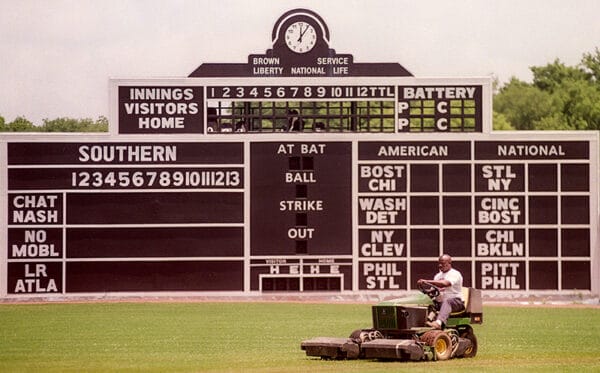 Rickwood Field Outfield
Over the years, Rickwood has hosted its share of legends. Teams traveling north after completing spring training regularly stopped in Birmingham to play exhibition games. During the field’s first season in 1910, “Shoeless” Joe Jackson, later implicated in the infamous Chicago “Black Sox Scandal” of the 1919 World Series, battled the Barons with his New Orleans Pelicans. In 1923, Birmingham hosted Rogers Hornsby’s St. Louis Cardinals and Ty Cobb’s Detroit Tigers. Cobb played at Rickwood many times and was a friend of Rick Woodward. In 1927, the Black Barons acquired pitcher Satchel Paige, who produced a 44-22 record with the team before leaving in 1931. The Dixie Series championship in 1931 spawned one of Rickwood’s most memorable pitching duels, as Barons veteran hero Ray Cauldwell defeated the Houston Buffs and 19-year-old Dizzy Dean, a future member of the Major League Baseball Hall of Fame. A teenage Willie Mays played two seasons with the Black Barons at Rickwood before joining the New York Giants in 1950. Other baseball greats who graced Rickwood include Christy Mathewson, Babe Ruth, Joe DiMaggio, Ted Williams, and Reggie Jackson. Rickwood Field has also served as a historic setting for motion pictures, including the 1994 biographical film Cobb, starring Tommy Lee Jones.
Rickwood Field Outfield
Over the years, Rickwood has hosted its share of legends. Teams traveling north after completing spring training regularly stopped in Birmingham to play exhibition games. During the field’s first season in 1910, “Shoeless” Joe Jackson, later implicated in the infamous Chicago “Black Sox Scandal” of the 1919 World Series, battled the Barons with his New Orleans Pelicans. In 1923, Birmingham hosted Rogers Hornsby’s St. Louis Cardinals and Ty Cobb’s Detroit Tigers. Cobb played at Rickwood many times and was a friend of Rick Woodward. In 1927, the Black Barons acquired pitcher Satchel Paige, who produced a 44-22 record with the team before leaving in 1931. The Dixie Series championship in 1931 spawned one of Rickwood’s most memorable pitching duels, as Barons veteran hero Ray Cauldwell defeated the Houston Buffs and 19-year-old Dizzy Dean, a future member of the Major League Baseball Hall of Fame. A teenage Willie Mays played two seasons with the Black Barons at Rickwood before joining the New York Giants in 1950. Other baseball greats who graced Rickwood include Christy Mathewson, Babe Ruth, Joe DiMaggio, Ted Williams, and Reggie Jackson. Rickwood Field has also served as a historic setting for motion pictures, including the 1994 biographical film Cobb, starring Tommy Lee Jones.
In 2023, the city began investing in and upgrading the stadium and the playing surface in collaboration with Major League Baseball. In June of that year, the league announced that the San Francisco Giants and St. Louis Cardinals will play there on June 20, 2024, to honor Willie Mays, who played for the Giants, and the Negro Leagues. That date was chosen to also celebrate the Juneteenth National Independence Day holiday, which commemorates the emancipation of enslaved African Americans.
Further Reading
- Cook, Ben. Good Wood: A Fan’s History of Rickwood Field. Birmingham, Ala.: A. H. Cather Publishing, 2005.
- Lowry, Philip J. Green Cathedrals: The Ultimate Celebration of Major League and Negro League Ballparks. New York: Walker & Company, 2006.
- Whitt, Timothy. Bases Loaded with History: The Story of Rickwood Field, America’s Oldest Baseball Park. Birmingham: R. Boozer Press, 1995.
- Wright, Marshall D. The Southern Association in Baseball, 1885-1961. Jefferson, N.C.: McFarland & Company, 2002.
